Hot Water System Upgrade under VIC Govt. Rebate
Find out if you qualify to get up to $3,000 in government rebates for heat pump hot water upgrade under the VEU rebate program in Victoria!
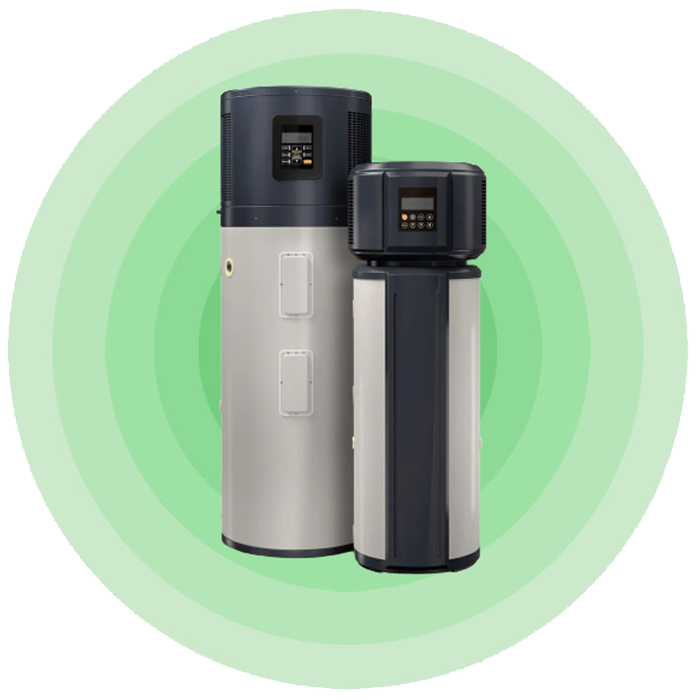
Hot water upgrades for VIC homeowners & businesses under VEU rebate
The Victoria state government recently introduced heat pump activities (44A, 44B, 44C) as a part of the Victorian Energy Upgrades (VEU) program. This initiative allows homeowners and businesses in Victoria to replace their electric water heaters with energy-efficient air source based heat pump water heating systems and receive up to $3,000 in government rebates.
By participating in this voluntary activity, Victorians homeowners and businesses can:
- Significantly reduce their water heating bills
- Make environmentally-friendly choices in line with the goals of the VEU rebate program and the state climate action targets.
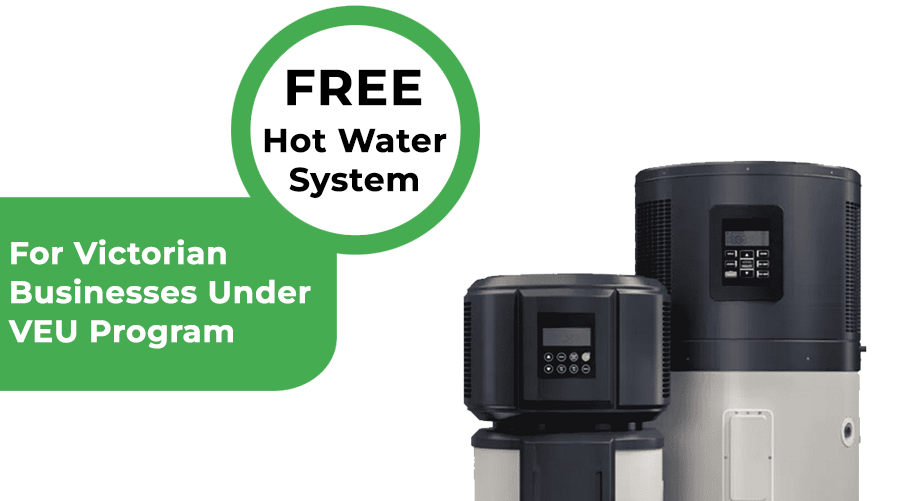
Replace old water heater with air-sourced heat pump
Air-sourced heat pumps are 2 to 3 times more energy-efficient than conventional electric and gas-fired water heaters, making the switch to heat pumps an evident (and earth-friendly) choice. This upgrade is also a financially prudent (and feasible) choice for homeowners and businesses in Victoria.
For example, a case study conducted by the Australia Renewable Energy Agency (ARENA) in August 2022 found that a business in Kyneton, located in central Victoria, slashed their energy costs on water heating and saved over $500,000 in a year by replacing their water heater with a heat pump powered water heating system, coupled with a high voltage power supply upgrade.
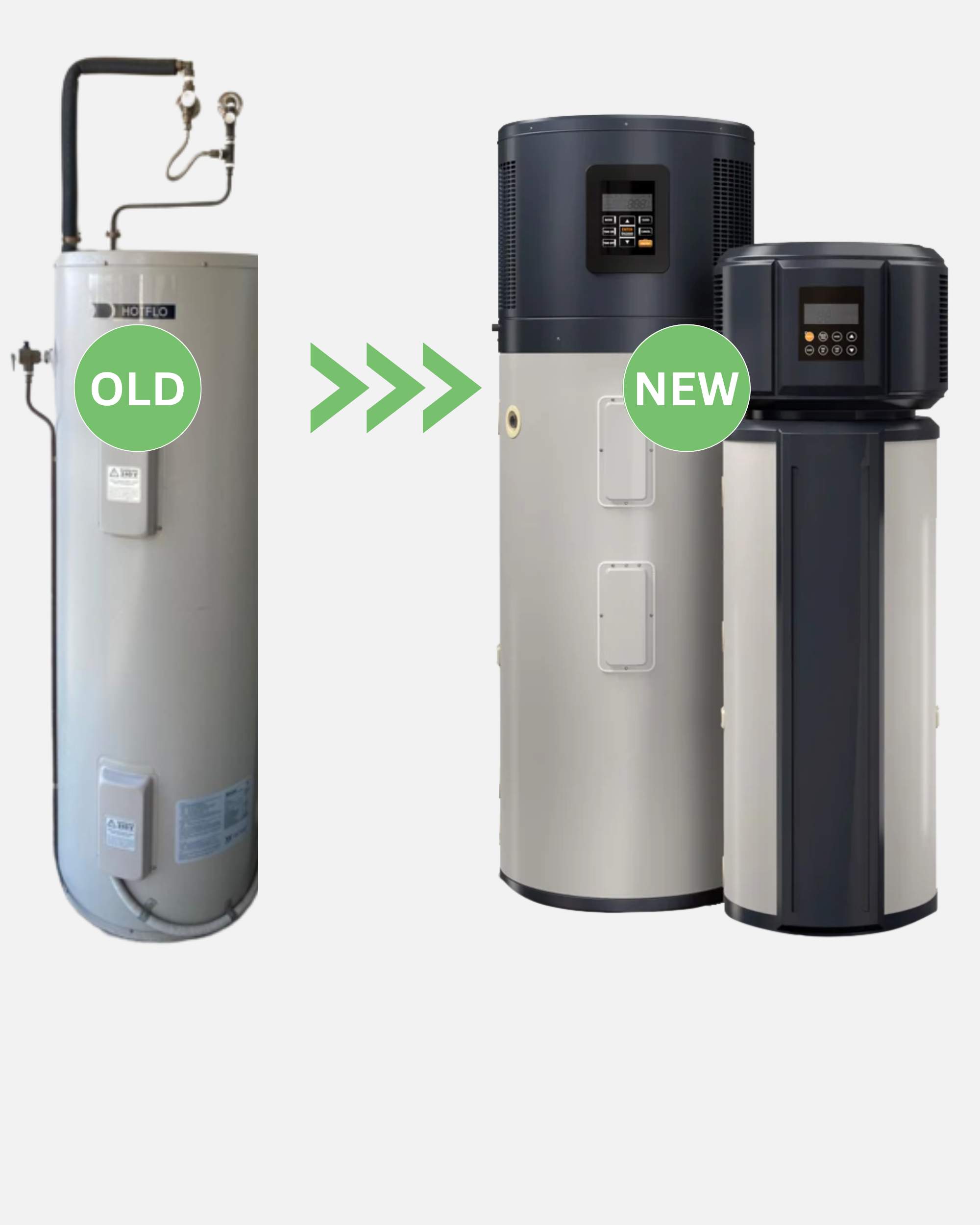
Who are eligible for hot water system upgrade?
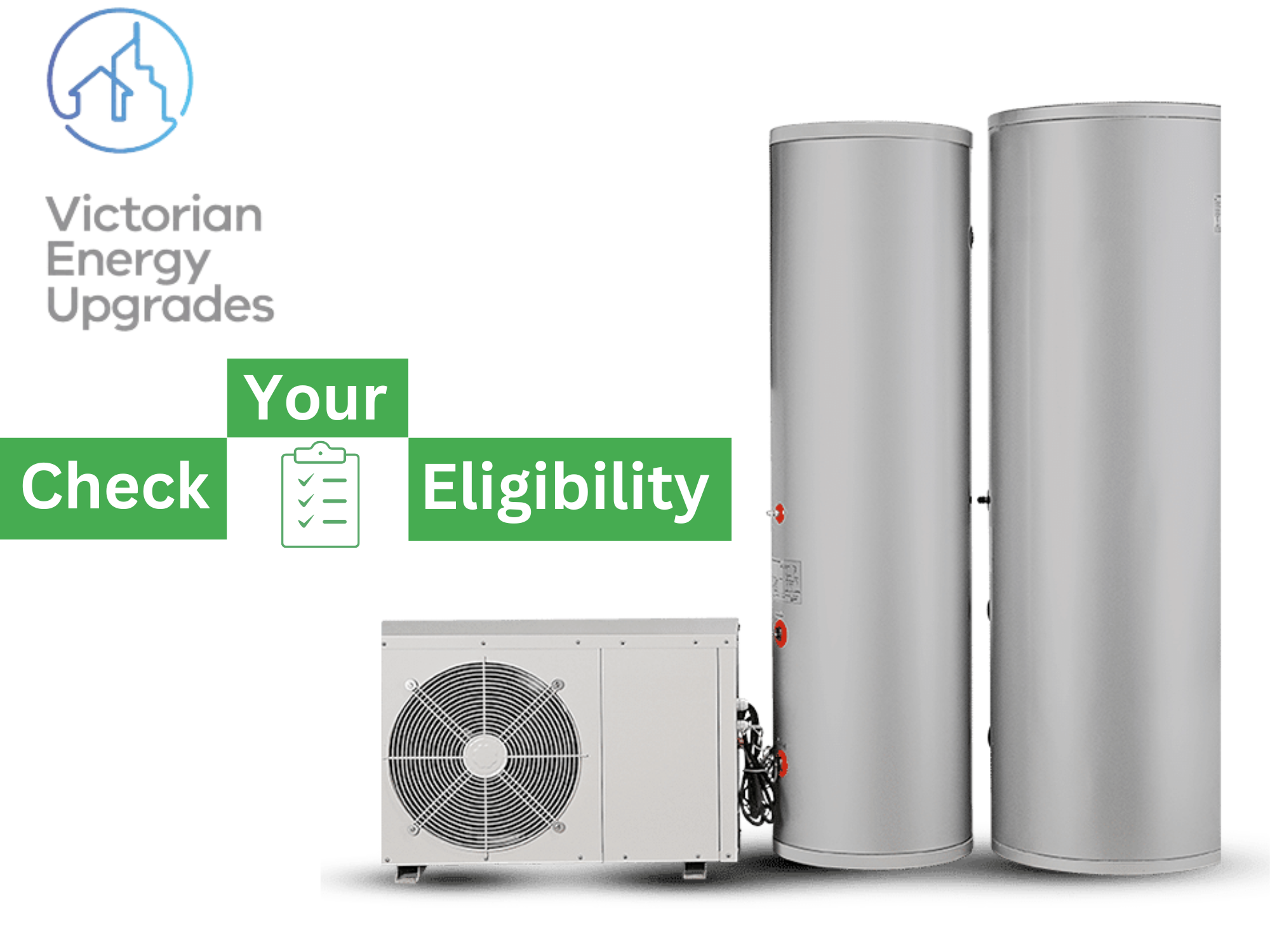
All homeowners and businesses in Victoria with electric water heaters are eligible for the government-sponsored heat pump-driven hot water system upgrade. To be eligible, the upgrade must be undertaken at:
- A residential/business premises
- Heat pump is 10 years or older (for businesses)
- Class 2 building (i.e., common area of a multi-residential building) (for businesses)
Is the replacement free?
The hot water heat pump upgrade is free for businesses, however homeowners can avail up to $3,000 in government rebates if installed under the VEU scheme – which is a carbon emission reduction scheme legislated by the Victorian government.
How to claim the rebate?
To claim the rebate on a hot water system upgrade or replacement in Victoria, follow these steps:
- Get in touch with us
- Share your business address and property ownership document
- We will send a licensed plumber to assess the site and discuss the process and the upgrade timeline
- Once the assessment is done, we will install the new heat pump
- Installation by a team of VBA (Victoria Building Authority) licensed plumbers and A Grade electricians (by Energy Safe Victoria)
- Old water heater is sent for decommissioning
- We will claim the rebate on your behalf
- Start saving on your electricity bills!
What is an air source heat pump driven hot water heater?
An air source heat pump uses electricity to extract ambient heat and utilize it to heat the water. Unlike conventional gas and electric water heaters that heat water by using electricity or burning gas, heat pump don’t generate heat per se. It just moves it from one place to another.
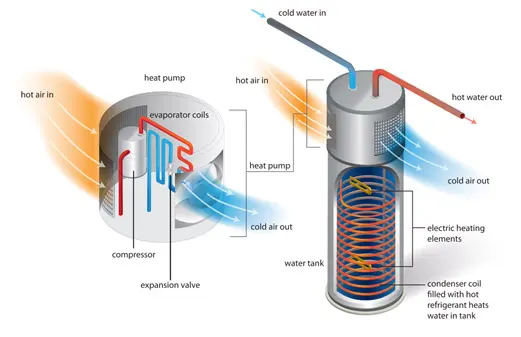
A heat pump water heater works by extracting heat from the air and transferring it to the water in the tank. An air-sourced water heater system consist of:
- A power cable
- A fan to draw in ambient air and push it through evaporator coils
- Evaporator coils filled with refrigerant to absorb the heat
- A compressor to compress the refrigerant liquid and increase its temperature
- Condenser coils to deliver the heat to water
- Storage tank to store the heated water
- Cold water inlet
- Hot water outlet
- and an expansion valve to reduce the pressure (and temperature) of the refrigerant liquid.
The refrigerant liquid is channelled back to the evaporator coils.
Types of heat pump driven water heaters
We can classify heat pumps into three major groups:
- Air source heat pumps (ASHPs)
- Absorption heat pumps
- Ground source (or Geothermal) heat pumps (GSHPs)
Air source heat pumps
ASHPs work by using a refrigeration cycle to transfer heat from the air outside the building to the inside of the building. These pumps are much more efficient than typical electric resistance water heaters.
Ground source heat pumps (GSHPs)
Geothermal (ground-source or water-source) heat pumps use soil as the source of heat. Loop pipes are dug into the ground about six feet deep, where the temperature stays constant throughout the year and becomes an efficient heat source.
Absorption heat pumps (AHPs)
Absorption heat pumps (AHPs) that use a different type of mechanism to transfer heat compared to air source heat pumps. Instead of using a refrigeration cycle like ASHPs, AHPs use a chemical process to transfer heat from one place to another.
Advantages of heat pumps over conventional water heaters
- Upgrades are done under the VEU rebate program
- Heat pump water heaters are more efficient than conventional electric resistance and natural gas water heaters
- Environment-friendly: heat pumps are more environmentally friendly than conventional water heaters, which can emit greenhouse gases and contribute to air pollution.
- Low maintenance cost
- Heat pumps can provide both heating and cooling, making them a versatile solution for year-round climate control
- These heaters last longer
- Safer than conventional heaters
How to choose a heat pump water heater?
Here are some major factors that you need to consider when switching from a gas/electric water heater to a heat pump:
- Size
- Types of water heaters
- Energy-efficiency
- COP (Coefficient Of Performance)
- Heating capacity
- Smooth functioning
- Flow rate in case of tankless ASHP water heater
- First hour rating
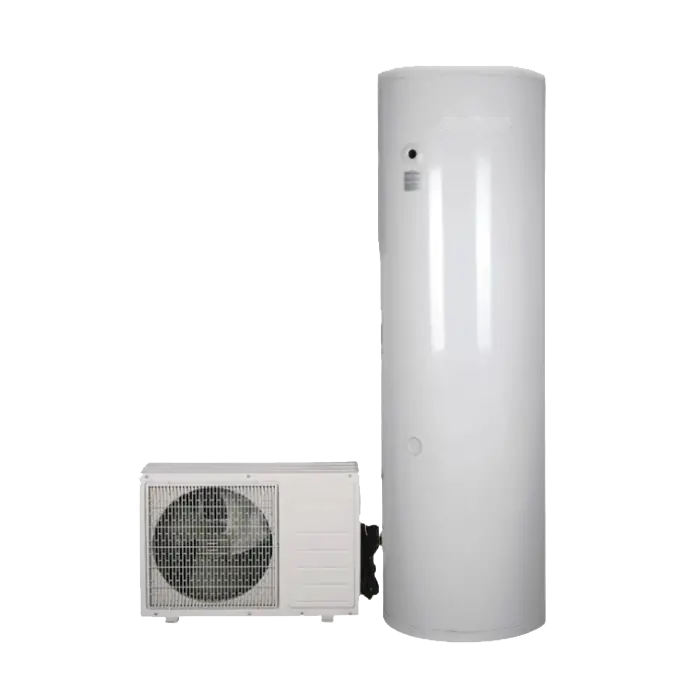
Can heat pumps work in cold climates?
These systems are capable enough for performing in bone-freezing conditions, even if the temperature drops to 25 °C degrees thanks to advanced refrigeration technology. Heat pumps we install meets the product performance criteria listed under VEET Regulations and VEU specifications, which includes:
- The product meets the AS/NZS 2712 standard.
- It achieves ≥60% annual energy savings
- It offers minimum water delivery temperature of ≥45 degree Celsius.
These heat pump uses lower boiling point refrigerant liquid, and such refrigerants draw heat from sub-zero ambient temperatures and continue to flow through the evaporator coils of the heat pump.
Factors that affect the performance of heat pumps
Here are some major factors:
- Frequent changes in temperature set point
- Compressor type
- Lack of maintenance
- Leaks
- Size
- Improper wiring
- Uninsulated water tank
Things to consider before installing heat pump hot water systems
An installer should consider following factors before the installation:
- Check the space and location: Make sure it has sufficient volume of space and the surface is firm.
- Exhaust fan positioning: Before the installation, should check the interior of your place and where you plan to position the exhaust fan.
- Tank size: Another important factor you need to consider is the size of the heat pump tank. Make sure your tank has sufficient water storage capacity.
- Air circulation surrounding the unit
- Keep the heat pump system upright even during the installation.
After the installation:
- Your system is working fine.
- Make sure there are no exposed wires.
How to choose among different sizes of heat pumps?
If your hot water usage is more than that, then you should opt higher tank size heat pump. Because, if you pick a small size tank, you’ll run out of hot water. We suggest that you upgrade the size of your tank over the current tank.
Heat pump size selection:
- Small (Tank size of 170-200 litres)
- Medium (Tank size of 215-250 litres)
- Large (Tank size of >300 litres)
